- The White Lady Sings
- JEHAN NUMA’S “MAGNA CARTA” on its “HOSPITALITY ROOTS”
- Wild at Heart
- BHOPAL MON AMOUR
- Baloo the bear
- Bhopal: A neglected treasure
- Satpura – A magical wilderness
- Bhopal Through The Eyes of Time
- Satpura Safari
- Bhopal: A Neglected Treasure
- Exploring the Wilderness of Madhya Pradesh
- Farm to Soul
- Tribes of Madhya Pradesh
- The Reign of the 4 Queens of Bhopal
- Bhimbetka Caves - Glimpsing Into the Past
- Places to Visit in Satpura National Park
Restaurants around the world, whether stand alone or chain, usually get their produce from industrial farms. These farms are known to utilize various chemicals and fertilizers to increase crop productivity and boost shelf life. However, in exchange for increased production and longevity, the quality of the produce is sacrificed, both in terms of its nutritional value and taste. Besides using chemicals, these industrial farms are the leading drivers of climate change and pollution due to their wanton use of fossil fuels and high waste production. As a result, many environmentalists and health enthusiasts have developed a level of distaste for industrial agriculture. While these practices are very harmful to the food we eat and the planet itself, the scale of the restaurant business and agriculture industry makes it nearly impossible to change the system.
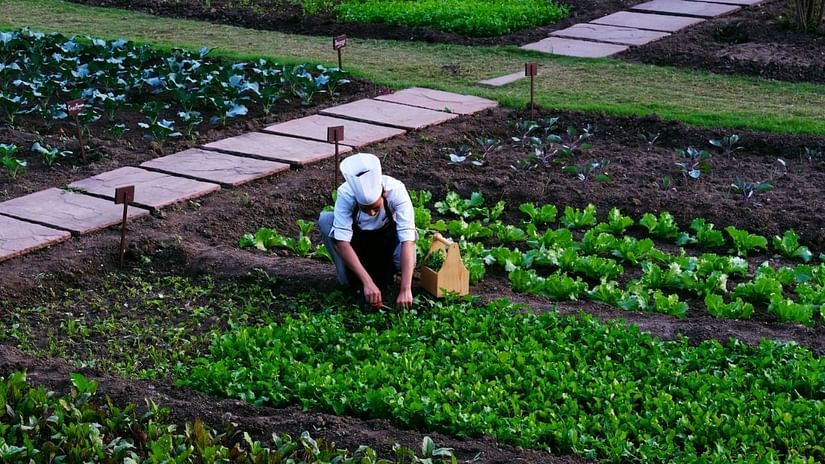
However, amidst such a bleak scenario, a glimmer of hope in the form of a counter-reactionary movement to this dependency of restaurants on industrial agriculture is gaining momentum. An eco-friendly movement that preaches mindful eating and prioritizes the freshness and quality of the ingredients over the more monetizing aspects (quantity and longevity). This 'food revolution,' as some call it, is known as 'farm to table'. Though it has become hugely popular in recent years, 'farm to table' is not a novel concept. The concept was first applied nearly five decades ago, in a restaurant located in Berkley, California, named Chez Panisse. Started by Alice Waters, Chez Panisse provided the basic framework for what 'farm to table' would be.
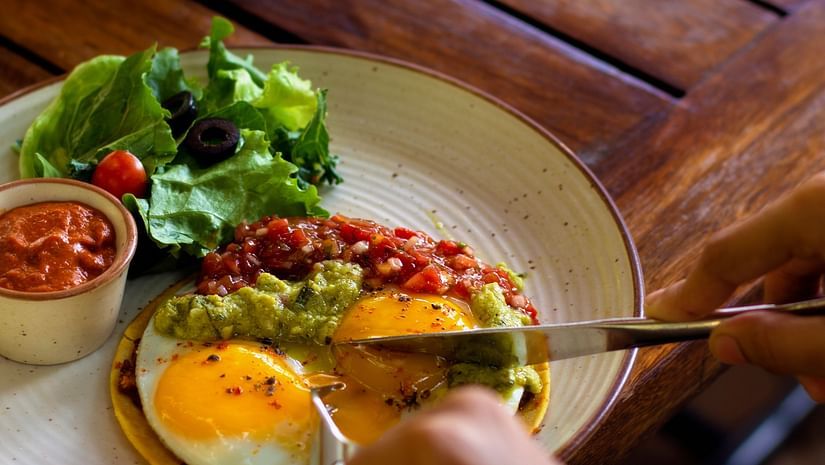
Waters' fine-dining eatery was quite different from its competitors. Most other restaurants in that genre used different cooking styles and techniques in combination with unique sauces to make their dishes more exotic, often disregarding the importance of the freshness and quality of their ingredients. Waters, however, did quite the opposite. She bought all her ingredients from local farmers, even growing some of the produce herself, thus prioritizing quality over quantity of ingredients. The extra effort made by Waters paid off, as Chez Panisse is now a Michelin star restaurant, and Alice Waters is considered as one of the most influential modern chefs alive.
As impressive as the food quality and the story behind Chez Panisse is, not everyone has the time and capital to visit such a restaurant regularly, especially if you live in India. But this does not mean that one cannot get an exceptional "farm to table" experience locally. The Jehan Numa Retreat, a luxury resort near the Van Vihar park in Bhopal, is one of the pioneers in implementing the "farm to table" concept in India. The "Jehan Numa Retreat'', or simply the "retreat," as called by the locals, has two restaurants, each providing a distinct and varied dining experience. "Greenhouse", our top cafe in Bhopal, has a dining area inside a glass structure that overlooks a plot of land where most of the ingredients used are grown and harvested. The "Greenhouse" specializes in what some call "Slow Food"; a style that takes typical fast food dishes such as burgers, french fries, and pizzas and transforms them into gourmet calibre dishes by using high-quality locally grown ingredients.
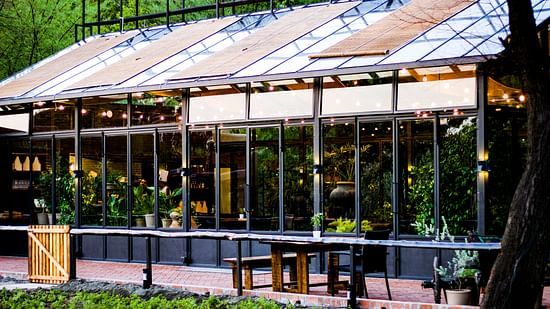
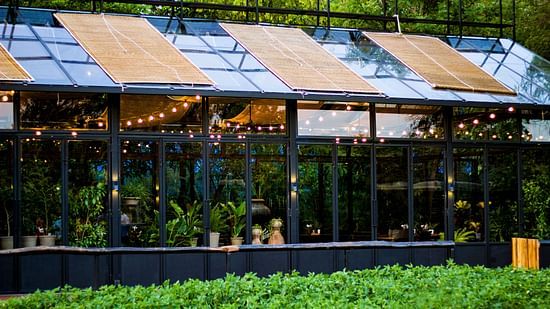
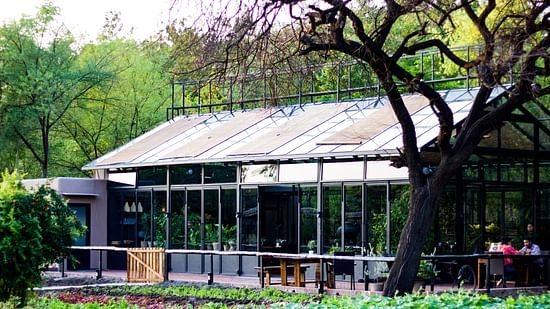
While the ‘Greenhouse’ serves gourmet renditions of western fast foods, "Under the Jamun Tree," the other restaurant at the Retreat, has a more traditional Indian menu. This restaurant boasts of an outdoor open space, next to a lush green lawn and a beautiful ravine, with a gigantic Jamun (popular Indian fruit) tree in the middle. All of this makes for a very tranquil and soothing ambience, greatly enriching the dining experience. The food served at both restaurants is lauded by critics and customers alike. According to Vincent Marquis, General Manager of the Retreat, much of it can be attributed to the fresh and locally sourced ingredients. One could even argue that the Retreat has taken Water's philosophy to another level. While Alice Waters' ingredients were fresh as she bought most of them from local farmers and farmer’s markets, the majority (almost 70 percent) of the ingredients used inside the Retreat's dining establishments are grown within the premises, giving them total control over the quality and freshness of their produce. To further this sentiment, unlike Waters, they don't use insecticides or any sort of fertilizer to enhance the production of the crop. They use lemongrass to repel insects and rely on the nutrient-rich black cotton soil they farm on for growth.
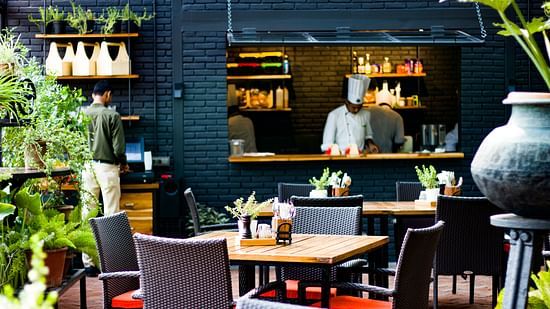
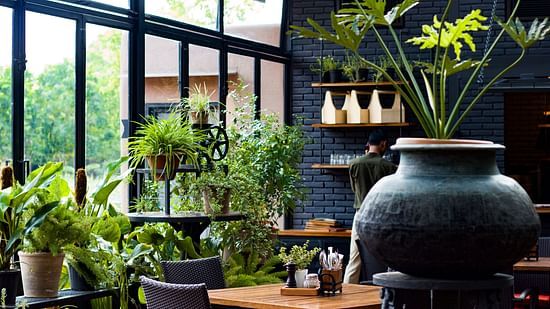
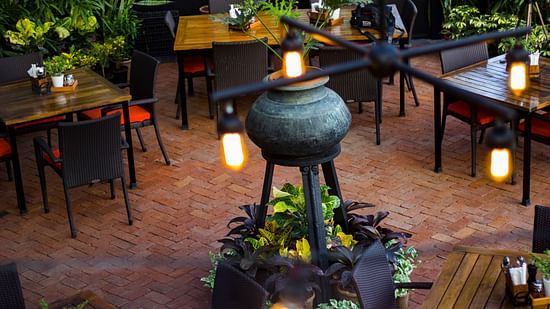
So if you ever have some time to spare and a belly to fill, then just retreat from your busy schedule and make your way to the Retreat - the best cafe in Bhopal. Experience the best homegrown ingredients by indulging in dishes that are both nostalgic and novel. Bask in the sunlight through the glass walls of the Greenhouse, or relax in the shade under the Jamun tree. Nourish not only your stomach but also your soul!
- Ruhayl Shapoo





